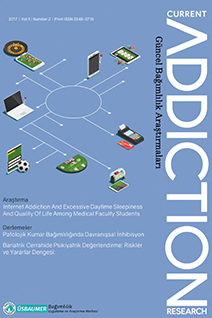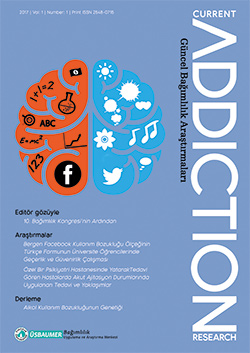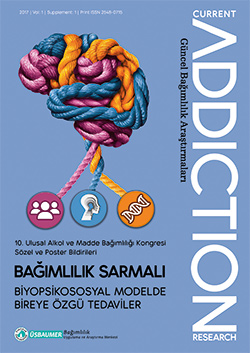ARTICLES
Original Article
Özge Nur Kutluer,Ceylan Ergül Arslan
2024, 8(1), s:5-12
Objective: In this study, it was planned to investigate the effect of traumatic events experienced by individuals diagnosed with alcohol and substance use disorder on the severity of addiction.
Method: The participants of this study are 50 people who applied to NPİSTANBUL Brain Hospital Amatem service for the treatment of substance use disorder. Of these 50 participants, 47 are men and 3 are women. The research data were collected through the scales given to the survey participants. The Addiction Profile Index (BAPI) was applied to the participants to measure the severity of addiction, and the Traumatic Experiences Scale (TEC) was applied to measure their traumatic experiences.
Results: In the study, the level of significance was taken as 0.05 and 0.001. A moderately significant positive correlation was found between the participants' traumatic experiences scores and their total addiction index scores.
Conclusion: According to the findings obtained in the study, the addiction index diagnosis sub-dimension scores were higher in male participants compared to female participants. It has been shown that childhood traumas impair neural structure and function, making individuals more susceptible to cognitive deficits and psychiatric diseases, including substance abuse (18). Therefore, it is important to evaluate and consider the history of childhood traumatic experiences in relation to substance abuse. The results obtained emphasize the importance of traumatic experiences in addictions to a degree that can contribute to the applications to be developed for addiction treatment and to future research.



 2. Sayı
2. Sayı
 1. Sayı
1. Sayı
 Ek Sayı
Ek Sayı







